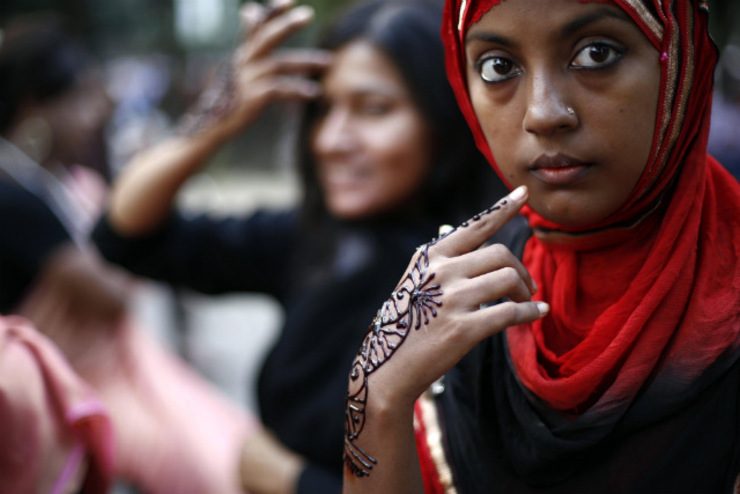SUMMARY
This is AI generated summarization, which may have errors. For context, always refer to the full article.

DHAKA, Bangladesh – At least 1,000 transgender Bangladeshis staged the conservative mainly Muslim country’s first ever pride march on Monday, November 10, to mark one year since the government recognized them as a third gender.
Dhaka’s busy roads were brought to a standstill as the transgender marchers, or hijras as they are known in Bangladesh, danced and sang their way through the streets, drawing crowds of spectators.
The group, many wearing colorful saris, unfurled a huge Bangladeshi flag and carried banners, one of which read: “The days of stigma, discrimination and fear are over.”
“I never dreamt that I would see this day in my life,” said Sonali, a 25-year-old hijra who uses one name.
“We are stigmatized everywhere. We are discriminated against. We are laughed at just because we do not feel like a man or woman. But today is different. We feel like we’re normal human beings,” Sonali added.
In a landmark decision, the government of Prime Minister Sheikh Hasina last November recognized the hijras as a third gender, securing their rights and allowing them to identify themselves as a separate gender in passports and other state papers.
The government says there are around 15,000 hijras in the country. But rights groups put the number of hijras in the country at around half a million. Bangladesh has a population of around 156 million, according to recent official estimates.
On Sunday, November 9, the community held a seminar to discuss their rights and staged a talent show to identify the best dancers and singers. A hijra beauty contest is due to be held during the latter part of November.
Leo Kenny, country director for UNAIDS, said more should be done to uphold their rights.
“Stigma and discrimination for the hijras mean this population does not have access to social services and other human rights. Ensuring the rights for hijras is important,” he said.
The transgender pride march reflects a growing tolerance for the rights of sexual minorities in Hasina’s secular government.
Early in 2014, the country’s first magazine for lesbian, gays, bisexual and transgender people was launched with hardly any protests. – Rappler.com
Add a comment
How does this make you feel?
There are no comments yet. Add your comment to start the conversation.